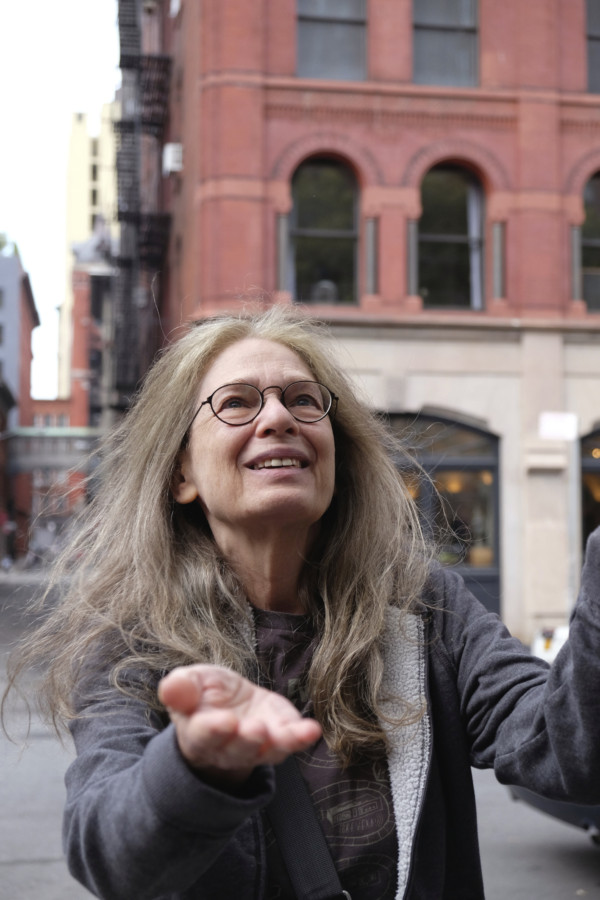Laurie Spiegel (1945- ) Composer Laurie Spiegel’s music draws on her classical training, and her pre-classical lute and folk banjo roots, but she is also a computer programmer, software designer, and visual and video artist, as well as an often-published theorist. She is known worldwide for her pioneering work with several early electronic and computer music systems. Her focus with these systems has largely been on interactive software that uses algorithmic logic as a supplement to human abilities—facilitating creative expression for far more people than traditional elite musical training previously allowed—and on the aesthetics of musical structure and cognitive process.
Her best known works include her 1970s music, created on computers at Bell Telephone Labs, early work (c. 1980) in the online transmission of digital music, a realization of Kepler’s Harmony of the World that went up on the Voyager spacecraft’s golden record, and Music Mouse—An Intelligent Instrument for Macintosh, Amiga, and Atari computers. Although she is often grouped with the Minimalists due to the modal, drone, and rhythmic aspects of her early LP record The Expanding Universe, her recent music is often considerably darker and more complex, as her later CDs Unseen Worlds and Obsolete Systems show. She has lived and worked in Lower Manhattan since the mid-1970s, and has taught at Cooper Union and NYU, where she founded the computer music studio in 1981. Her writings, have been published by MIT, Cambridge, and Oxford University Presses, and her visual art has been shown in various galleries in the US and abroad. She is also among the very first women to have composed soundtracks for films.
In addition to her work in the arts, Spiegel is also a licensed wildlife rehabilitator, caring for animals who otherwise face the difficulties humanity is increasingly creating.

